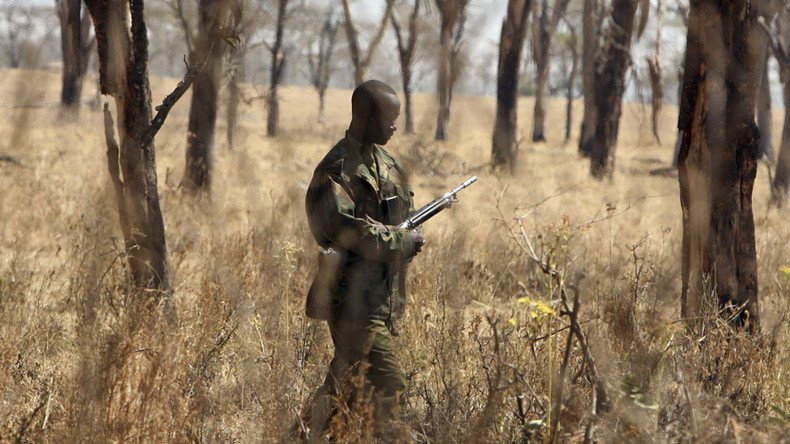Creeping militarization of global conservation is ‘triple fail’ – academic

Military solutions to conservation issues like ivory poaching will fail people, wildlife and security, according to a UK professor of political ecology.
Writing in a comment piece for the Sustainable Security blog, which examines alternatives to traditional ‘hard’ approaches to peace and conflict, Professor Rosaleen Duffy warned the new trend is counterproductive.
Duffy, who teaches political ecology at London’s School of Oriental and African Studies (SOAS), argues that the hunting of “high profile charismatic species such as elephants, rhinos and tigers has led to the development of more militarised approaches towards conservation.”
However, “rather than producing the claimed win-win-win outcome for wildlife, security and people, it is producing a triple fail.”
Duffy says the impact of the ‘War on Terror’ has led both governments and NGOs to see a military solution as a cure-all, when precisely the opposite is true.
One cause is the new development of big wildlife NGOs competing for funding, which has led to them to place security at the forefront of their pitches to donors.
She also questions claims made in some quarters that illegal industries like ivory poaching have been used to fund terrorism, citing a number of reports which counter such claims.
Duffy says the increased use of drones and private military companies has also translated to the conservation sphere.
She claims the “rise of these approaches is deeply problematic for two reasons: they produce responses that are not effective for countering terrorism and insecurity, and equally they do not help us tackle poaching effectively.”
This is because militarized anti-poaching programs, for example, fail to address causes as diverse as corruption, demand for rare animal products by the wealthy and things like “poverty, inequality and the lack of opportunities in poorer source countries.”
She concludes this approach fails to provide security, as well as failing local communities and the wildlife itself, resulting in what she terms a “triple fail” effect.












